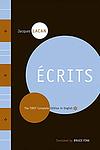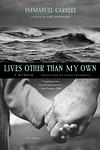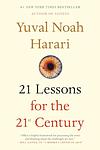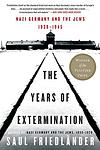The Greatest Israeli, French "Nonfiction" Books Since 2000
Click to learn how this list is calculated.
This list represents a comprehensive and trusted collection of the greatest books. Developed through a specialized algorithm, it brings together 288 'best of' book lists to form a definitive guide to the world's most acclaimed books. For those interested in how these books are chosen, additional details can be found on the rankings page.
Genres
Countries
Date Range
Reading Statistics
Click the button below to see how many of these books you've read!
Download
If you're interested in downloading this list as a CSV file for use in a spreadsheet application, you can easily do so by clicking the button below. Please note that to ensure a manageable file size and faster download, the CSV will include details for only the first 500 books.
Download-
1. Sapiens: A Brief History of Humankind by Yuval Noah Harari
This book provides a comprehensive exploration of the history of the human species, tracing back from the earliest forms of Homo Sapiens to the modern day. It delves into evolutionary biology, the development of cultures and societies, and the rise of major ideologies and technologies. The book also discusses the future of the species, posing thought-provoking questions about our roles and responsibilities in a rapidly changing world.
-
2. Thinking, Fast and Slow by Daniel Kahneman
The book delves into the two systems that drive the way we think—System 1, which is fast and intuitive, and System 2, which is slow and deliberate. The author, a Nobel laureate, explores how these systems shape our judgments and decision-making. He presents several groundbreaking experiments that have shaped our understanding of human thought, revealing where we can trust our intuitions and how we can tap into the benefits of slow thinking. The book also discusses how our cognitive biases often lead to errors in judgment and affect our decision-making processes.
-
3. Capital in the Twenty-First Century by Thomas Piketty
This book provides a comprehensive analysis of the dynamics of capital accumulation and distribution over the last few centuries. The author argues that the rate of capital return in developed countries is persistently greater than the rate of economic growth, leading to high levels of wealth inequality. The book further suggests that the level of income inequality is not primarily a result of differences in individual labor income but rather the result of differences in capital ownership and the income derived from it. The author proposes a global tax on wealth to prevent soaring inequality.
-
4. Homo Deus by Yuval Noah Harari
This book explores the future of humankind, building upon the foundation laid by its exploration of our past. It delves into the potential paths humanity might take as technological advancements and artificial intelligence begin to challenge the very essence of what it means to be human. The narrative posits that as we conquer famine, war, and plague, our focus shifts towards achieving happiness, immortality, and divinity, raising profound questions about our future roles and values in a world where machines and algorithms might outperform us in thinking, making decisions, and understanding the universe. Through a blend of philosophy, history, and future-gazing, the book invites readers to consider the implications of such a future, both exhilarating and daunting.
-
5. Écrits: The First Complete Edition in English by Jacques Lacan
This book is a comprehensive collection of essays by a renowned psychoanalyst, offering readers an in-depth understanding of his theories on human psychology. The author delves into complex topics such as the unconscious, the mirror stage, and the concept of the Other, while also exploring the intersection of psychoanalysis with philosophy, linguistics, and anthropology. The book challenges conventional understanding of subjectivity and identity, making it a seminal work in the field of psychoanalysis.
-
6. Passagère Du Silence by Fabienne Verdier
"Passagère du Silence" is a memoir that chronicles the transformative journey of a young Western woman who immerses herself in the ancient traditions of Chinese art and philosophy. Seeking to understand the depths of Chinese painting, she endures years of rigorous training under the tutelage of venerable Chinese masters, navigating cultural barriers and personal challenges. Her narrative weaves together her artistic growth with introspective reflections, revealing how the disciplined practice of calligraphy and painting leads to profound insights into the nature of silence, creativity, and the human spirit. Through her experiences, the memoir explores the fusion of Eastern and Western perspectives, ultimately portraying a quest for universal truths within the realm of art.
-
7. Lives Other Than My Own by Emmanuel Carrère
"Lives Other Than My Own" is an emotionally charged narrative that explores the lives of two women who have experienced immense loss, one from a tsunami and the other from cancer. The author, through his personal encounters, delves into the raw emotions, resilience, and the profound bonds of family and friendship that emerge from these tragic circumstances. The book is a thoughtful exploration of empathy, offering a poignant look at the strength of human spirit in the face of adversity.
-
8. Them: A Memoir Of Parents by Francine du Plessix Gray
"Them: A Memoir of Parents" is a compelling exploration of the author's complex relationship with her glamorous and larger-than-life parents. The author delves into her mother's past as a Russian émigré and fashion icon, and her stepfather's career as a renowned magazine editor. The memoir is a study of the glittering world of mid-20th century New York, the impact of war and displacement, the power dynamics in her parents' marriage, and the author's struggle to carve out her own identity amidst these overwhelming personalities.
-
9. The Upside Of Irrationality by Dan Ariely
The book explores the counterintuitive ways that irrational behaviors shape our lives and influence our decisions, from the workplace to personal relationships. The author, a behavioral economist, uses a mix of experiments, case studies, and anecdotes to demonstrate how understanding these irrational forces can lead to better outcomes in various aspects of life. By examining topics such as the effects of high bonuses on performance, the motivations behind revenge, and the impact of adaptation on happiness, the book provides insights into how we can harness irrationality for positive change and improved decision-making.
-
10. 21 Lessons For The 21st Century by Yuval Noah Harari
This book navigates through the complexities and challenges of the 21st century, offering insightful analysis and thought-provoking lessons on various pressing issues such as technology, politics, religion, and education. The author delves into the impact of artificial intelligence and biotechnology, exploring how they are reshaping the world and questioning the future of humanity in this rapidly changing landscape. Through a series of compelling essays, the book encourages readers to reflect on the values, meaning, and personal engagement in a world full of noise and uncertainty, aiming to equip society with the understanding and wisdom to navigate the unknown future.
-
11. The Years of Extermination by Saul Friedlander
"The Years of Extermination" is a comprehensive historical analysis of the Holocaust, examining the genocide from 1939 to 1945. Drawing on a variety of sources, including diaries, letters, and firsthand accounts, it provides a detailed and harrowing account of the systematic extermination of the Jewish people during World War II. The book also explores the responses of various groups, including the Jewish communities in Europe, the international community, and the perpetrators themselves.
-
12. The Black Count: Glory, Revolution, Betrayal, and the Real Count of Monte Cristo by Tom Reiss
This book tells the true story of General Alex Dumas, a man of mixed race who rose to power in France during the French Revolution. Despite his achievements and contributions, Dumas faced severe racial discrimination and was eventually imprisoned. His life and experiences served as inspiration for his son, who became a famous novelist. The book explores themes of race, class, and the struggle for equality, providing a fascinating look at a lesser-known figure in French history.
Reading Statistics
Click the button below to see how many of these books you've read!
Download
If you're interested in downloading this list as a CSV file for use in a spreadsheet application, you can easily do so by clicking the button below. Please note that to ensure a manageable file size and faster download, the CSV will include details for only the first 500 books.
Download










